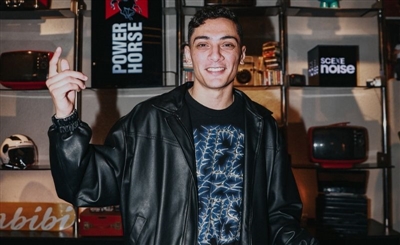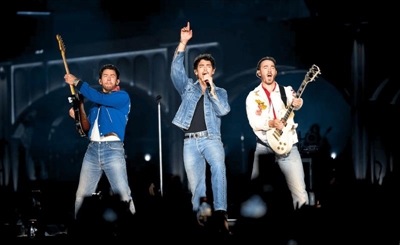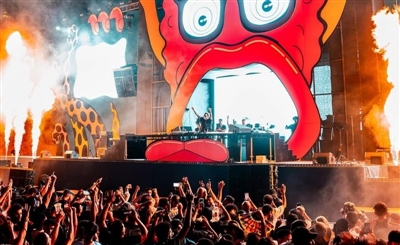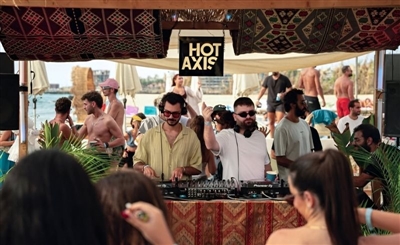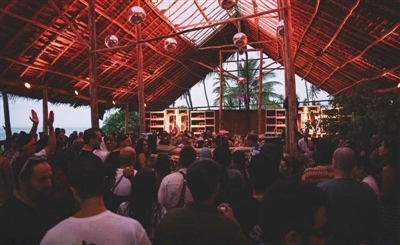Yasmine Hamdan on Songs & Signs
Farah Hosny sits down with the sultry Lebanese songstress to find out the secrets behind her cult-like success, stage fright and what exactly she uses for her hair...
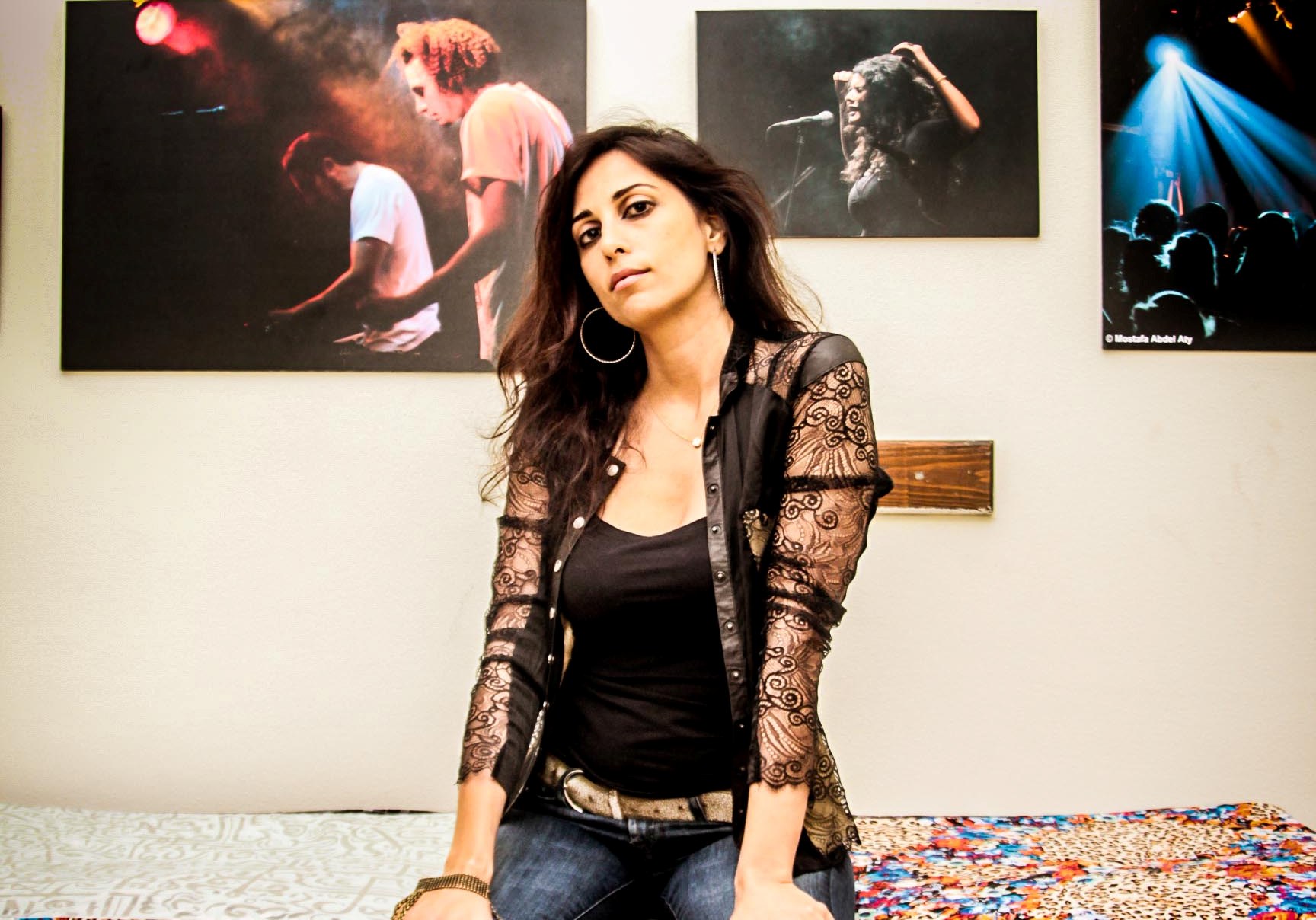
When we walk into the D-CAF press centre, Yasmine Hamdan, who is in high demand and on such a tight schedule that we've been allocated 15 minutes with her and no more (though she happily chats away for much longer than this, never once glancing at her watch), is finishing up with another interview, and frantically scrolling through her phone. She gets up to say hello, big smile, big eyes, and then sits back down still scrolling. "Why are the Egyptian photographers putting horrible pictures of me in their newspapers?" she exclaims in mock horror with a laugh, flipping through online photos she clearly doesn’t approve of, "Maybe I'm horrible on stage!" We can definitely attest to the fact that that is completely untrue. The Qasr El Nile theatre, where she performed on Friday night, was swarming with fans of the Lebanese musician, forming a crowd outside the theatre so massive that we had to cheekily push our way through waving our press passes as our legitimate excuse for cutting ahead. She's petite in real life, smaller than she appeared on stage where she has a transfixing quality, with that typical 'Arab beauty' look you hear about; massive, haunting eyes rimmed with kohl and perfect jealousy-inducing, waves of dark hair.
We ask her how she thinks the show went. "Incredible," she gushes sincerely, "People are so great. I've been touring, and since I knew I was coming to Cairo I was so excited! And everybody's like, aren’t you scared? Because, you know, they see what's happening on TV. And I'm like what? What do you mean?! I was really really happy to be here." The tickets to her show sold out within days and, despite the fact that she's been singing for longer than we've been doing basically anything, we wonder if a packed to the brim theatre is purely exciting or if it can be a little daunting or scary even to a seasoned professional. "Why would it be scary? I'm not scared by this habebti. I'm the post-war generation – nothing scares me!" she says with a laugh. And she is pretty damn fearless. The musical darling has been breaking barriers and following her own, uniquely winding path for years, from the inception of her first band, Soapkills, in 1999, one of the first Electronic bands in the Middle East, to her Arabology album under the Y.A.S moniker, to her latest album 'Ya Nass', creatively amalgamating Arabic dialects with electronic sounds, Pop and Folk touches, and husky vocals, for a brooding, eclectic final sound.

Along the way, the songstress pretty much solidified her spot as something of a musical wonderchild of a pioneer. "I do think that I get excited in trying things out and experimenting and also I…" she pauses, trying to articulate the point she's trying to get across. "When you're an artist, you don’t have the distance, you don’t consider yourself, it's not a plan. You don’t put yourself in a format or you don’t define yourself and your work. So I guess what I do is follow my desires and I follow where my heart takes me." It's almost as though the new sound she eventually created was an unconscious, natural progression for her. "When I started singing, for example, with Soapkills, I did feel like this was something that needed to be done, this is a door that needs to be opened. And this is something that I felt I could do." And unlike many Arab women, she's not one for conformity. "There are so many taboos and so many, you know, formats and checkpoints, and borders, and this doesn’t work with me." Fuelled by a singular drive - "I'm not sure I'd be so passionate about what I do if I didn’t have this drive," - she's excited by what she hesitantly calls, the "irregular." "Yeah, irregular is nice," she says contemplatively. "Going to irregular places, doing irregular things. I like that. It's challenging for me, it's exciting, and it makes you process a lot of things and it connects you with a lot of things; with yourself in a different way, with your limitations, with your possibilities, with how you can broaden and enlarge your life, your world. Somehow it's very thrilling." About the word pioneer being used to describe her, she looks a bit surprised. "If people think I'm a pioneer then it's great," and about her fearless musical ass-kicking, she says, "you're opening doors, you're breaking down walls, it's like…what do you call it? Not militia…" she snaps her fingers trying to pull the words out of thin air, speaking in that smooth Lebanese Arabic all Egyptian are jealous of. Guerilla? "Yes! It's like being an artistic guerilla!" she says with a wink. "It's all about inventing and improving and being creative and being curious and being open, and remaining free," she explains.
As she speaks, she uses arm gestures liberally, as most Arabs tend to do. And she is Arab through and through, insisting at the start of her career to sing in her own language despite numerous record deal offers that required her to sing in English. "I think [the reason I chose to do this] seems obvious today," she says. Considering her massive success, in large part due to the 'irregular' path she chose, which included singing in Arabic, yes, we would think it seems pretty obvious now. "But it didn’t seem obvious at the time," she says, "It wasn’t a trend." But amongst a barrage of girls singing in English, she says, "It's not my thing. This is their life, their culture. My culture is Arabic. Where my heart goes, what my heart chooses, is Arabic." She says this all with a sincerity, and a kind of love that unfortunately, Arabs rarely show for their own countries. Despite the fact that she had a nomadic childhood, raised in a variety of countries from Kuwait to Greece, due to the situation in her home country of Lebanon, or perhaps because of her scattered upbringing, she veered towards Arabic music. "Arabic music gave me a lot of answers about who I was. I was a little bit lost, in my identity, as a child or teenager, having lived abroad in many places. I needed to have like, confirmation and I needed to find where I came from, and music – Arabic music – gave me some answers."

Even though Hamdan admits to being massively influenced by artists from the Western world, they'll never rival her undying love for some of Arabic music's greats. "These guys like Asmahan, and Abdel Wahab are like my family. And I do believe in this kind of magical, you know, connection between space and time. I know that Asamahan showed me the way, I know. She's like a spirit, but for me she's real. Or Abdel Wahab – I'm convinced that he wrote some songs for me!" she says with wide-eyed conviction but a laugh that says she doesn’t take herself too seriously. So we have to ask – if she could have lunch with either one of them, or any other musician living or dead, but I barely get the words out before she exclaims: "Abd El Wahab for sure! Look I have a list of maybe 100 people, but Arabic, yes Abdel Wahab." She leans in conspiratorially, "I'll tell you a funny story, because I think I'm a witch – sometimes!" A few years ago, in Cairo for a film festival, she was at a bar, and after a few drinks, a girl with her asked where she wanted to go in Cairo. Hamdan replied instantly that she'd really like to visit Abdel Wahab's grave, to which the girl said it would be practically impossible. "Three minutes later, Abdel Wahab's doppelganger walks through the door!" she almost shouts! Turns out, the photocopy of her hero was his son. "He [Abdel Wahab] just sent me a sign," Hamdan says simply. She then proceeds to gush her praise for the singer, who is a massive influence on her music. "I'm in love with this guy; he's done so many things for Arabic music. When he started mixing between different sounds and different rhythms he was one of the first. He was a free artist, he was my hero!" I laugh and tell her I've never heard anyone talk about another person so adoringly, particularly someone they don’t actually know and she laughs and jokes, "if you say his name three times I will faint!"
But essentially it was these music greats, the people our grandparents worship - "I do listen to grandmothers' music, this is completely my style!" - she freely admits that made her fall in love with Arabic music. "I am very proud to be Arabic," she says. But "I also always, always kept the freedom to pick what I like and what I desire in Arabic culture and to just throw away what I don’t." Part in parcel of the Arab cultur comes a heightened difficulty in pursuing a career in the arts, parents often balking with immense disapproval at the idea of their children following any kind of artistic path. "Well nobody supported me," she says instantly. "Well, my father, he did not show any resistance, but he was very unhappy about it. My mother was completely freaking out!" In a conservative family, Hamdan was the first to break the mould and insist on doing her own thing despite protestations. "I'm very stubborn. This is a quality…sometimes! But I did not have the choice, really. When I started making music, it kind of saved my life." But she understands her parent's hesitation to embrace her chosen career path, saying that "Even in Europe people get scared because it’s a scary job, it’s a scary career, it’s a scary choice. And I know now, with what I've been through, I know how many sacrifices you have to make and how difficult it is, and sometimes how unfair and cruel – and sometimes extremely lucky – you can be. You have to be resistant."
And Hamdan is a study in resistance, insisting on forging her own path from very beginning of her career up until her latest album, about which she says: "This was the first time I said to myself, ok, I'm gonna decide everything and I'm gonna find my allies and the people that will help me to go there. Because usually I would be collaborating but not being as active." With the help of Marc Collin, the producer she worked with she says simply "And I did. It was really incredible to experience that. I opened myself to the possibility to just fight for what I want, 100 percent." She can't choose a favourite song on the album because "they are all like my babies" but she likens the process of creating the album to a sort of musical treasure hunt, where there are clues littered throughout vast terrain and you wander through the sounds to collect them all to reach the final prize; a perfectly completed song. "It's like playing games you know…you have indications to go from a place to another …you try something and then you go back and try something else. And something happens and you think, ok, this is a sign. And I do work with signs, I believe in signs." Detail oriented and obsessive almost to a fault, "I can be obsessed by just one sound," her creative process isn’t always fun and games. "Sometimes you just become haunted," she says. And this haunted emotion comes through in her voice and music, which has a brooding, melancholic sound, in the best way possible.

Being in the hometown of her hero, Abdel Wahab, she insists on a fierce love of Cairo, despite disliking certain aspects such as the harassment problem we face in the streets; a legitimate complaint, quite frankly. Her favourite thing about the city? "The music," she says without skipping a beat. "And the vibe. And the humour. And the people's energy. This place is vibrating and you can feel it." The same way Abdel Wahab was an innovator, so is Hamdan, and she's proud of how the music scene in the Arab world in general has progressed as well. "There's an energy that was not present before and it feels good. Now there is more and more a culture of people going out, going to concerts, organising things. And this is very healthy, and I'm sure that – I'm hoping that – this will grow and grow."
As we wrap up the interview I feel the need to ask about what her hair secret is, in an effort to try and replicate it. She bursts out laughing, and tugs at the ends of her hair, "My hair is horrible today!" She smiles though, "I change shampoos. I actually forgot to bring my shampoo. I always forget things when I travel – because I'm a mess! But I manage. I'll improvise. I'm an adventurist." A mess she certainly is not. Her thoughts may be scattered but she's one of the most 'together' people I've met. She has a sort of intense focus, and it's reminiscent to me of when yoga people talk about finding their centre and all that hippie-dippie crap, but I don’t think I've ever witnessed it in a person before. An adventurist? Given her track record, definitely.
- Previous Article Getting Abyusif
- Next Article DGTL: Much More than a Music Festival
Trending This Month
-
Jan 29, 2026



